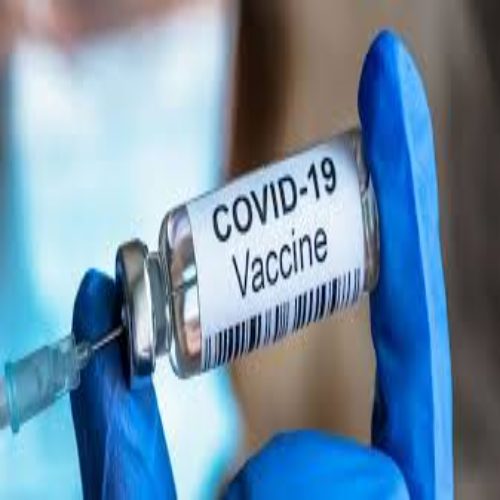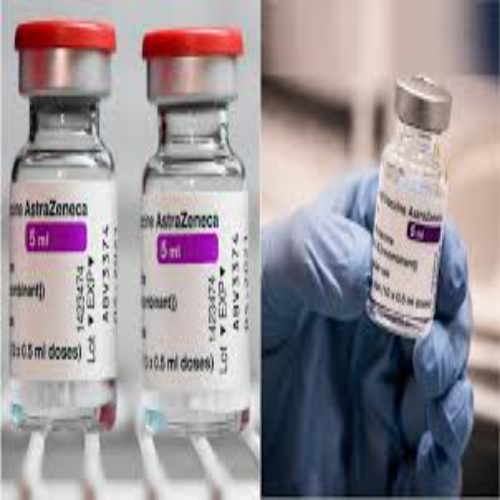
For several months, there was uncertainty surrounding how African nations would gain access to COVID-19 vaccines, mainly because most vaccine producers are based in Europe. Additional concerns included whether developing countries could manage the storage requirements of vaccines such as Pfizer’s, which must be kept at minus 70 degrees Celsius.
Ultimately, Nigeria’s situation was somewhat alleviated through the COVAX initiative— a global partnership led by UNICEF, the World Health Organization (WHO), and Gavi, the Vaccine Alliance.
In March, Nigeria received 3.62 million doses of the AstraZeneca vaccine out of a promised 16 million doses via COVAX. While this amounts to less than a fifth of the population’s needs, it raised significant concerns about the pace of the vaccine distribution.
However, these worries have recently been eclipsed by growing concerns in Europe regarding the AstraZeneca vaccine’s safety.
Is the AstraZeneca Vaccine Linked to Blood Clots?
Several European countries, including Germany, France, and the Netherlands, temporarily halted the AstraZeneca vaccine following reports of blood clot cases. Though these suspensions are described as precautionary, the European Medicines Agency (EMA) has confirmed that the vaccine remains safe and poses no increased risk of blood clots. Similarly, the UK Medicines and Healthcare products Regulatory Agency (MHRA) found no evidence to support claims of blood clots caused by the vaccine.
These concerns have led to further discussions across Africa, with the Africa Centres for Disease Control and Prevention (Africa CDC) holding urgent consultations on the matter. Dr. John Nkengasong, director of Africa CDC, stated that the AstraZeneca vaccine has proven to be both safe and effective, emphasizing that responses should be based on strong scientific evidence.
While the vaccine rollout in Nigeria has proceeded more smoothly than anticipated, there has been a noticeable uptick in vaccine hesitancy.

Growing Vaccine Skepticism in Nigeria
Many social media users report a decline in the number of people attending vaccination centers, with some choosing not to receive the jab. Omolola, a customer success officer at a Nigerian bank, expressed her doubts about the vaccine’s authenticity, citing circulating rumors about government involvement and potential sources of the vaccine.
Amara, a medical student from Lagos, indicated that while she is open to taking the vaccine, she prefers to wait until others have received it and shared their experiences.
Frontline health workers are also expressing concerns, particularly regarding the integrity of the vaccine’s cold storage chain. Some healthcare professionals are also hesitant, citing fears of potential side effects and the belief that prior COVID-19 infection may offer sufficient immunity.
The Impact of Misinformation
The reluctance to take the vaccine in Nigeria is partly fueled by misinformation. Dr. Boluwatife Afolabi, a health worker, stated that many of his colleagues are influenced by false information they encounter online. Some healthcare workers mistakenly believe that having recovered from COVID-19 provides long-lasting immunity, a misconception that may undermine the fight against the virus.
In the face of this misinformation, there are growing concerns about the possible impact on the vaccination campaign, drawing parallels to the 2003 setbacks in Nigeria’s polio vaccination efforts. Misinformation about polio vaccines, such as claims that they were laced with contraceptives or HIV, led to boycotts and significantly delayed progress.
Eris, an animator in Abuja who has already taken the vaccine, shared her experience of receiving constant messages and articles claiming the vaccine was harmful, or part of a global conspiracy to control the population.
Furthermore, some health workers are themselves spreading these unfounded fears. Cyndarilla Nwanneka, who works at the Federal Medical Centre in Asaba, recounted a conversation with a lab attendant who questioned why people in Nigeria would want the vaccine when it was supposedly not being used abroad.
The Way Forward
There has yet to be an official response to the growing concerns and misinformation, but it is clear that the Nigerian government must intensify its efforts to educate the public. Efforts must focus on delivering clear, fact-based information about the vaccine and addressing widespread misconceptions. Additionally, showcasing successful vaccination efforts from other countries can build trust and help combat the spread of disinformation.
Nigeria’s successful battle against polio through widespread vaccination serves as an important precedent and provides a valuable reference as the country tackles the challenges posed by COVID-19.


